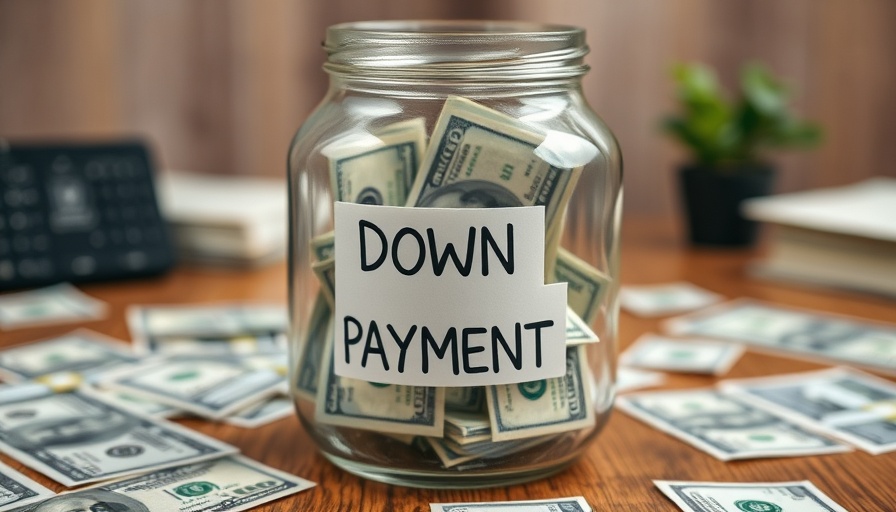
The Real Costs of Home Ownership: Beyond the Mortgage
Buying a home is often touted as a cornerstone of the American Dream, but the reality is that homeownership goes well beyond just paying a mortgage. Many first-time buyers focus solely on their monthly mortgage payments, ignoring additional costs that can catch them off guard. Understanding these financial commitments can save you from financial stress and ensure that your dream of homeownership remains a sustainable one.
Upfront Costs: What You Need to Prepare For
Your journey to homeownership begins with several upfront costs, each varying based on your location and the property's complexity. Here are some key expenses you should plan for:
- Down Payment: This is usually the largest upfront expense, often ranging from 3% to 20% of the purchase price. For a home costing $300,000, expect to put down between $9,000 and $60,000 depending on your loan terms.
- Amenities Fees: Fees associated with amenities can vary widely. If you’re buying in a community with shared spaces, consider HOA fees that can add to your monthly expenses significantly.
- Inspection Fees: To ensure you’re not inheriting a house full of hidden issues, invest in a reputable home inspection. Costs can range from $300 to $600, but the long-term savings can be substantial if it identifies major problems.
- Closing Costs: Estimated at 2% to 5% of your home's price, you need to budget properly for closing costs which include loan origination fees, title insurance, and taxes. For that $300,000 home, expect to pay between $6,000 and $15,000.
Ongoing Expenses: Budgeting for the Long Haul
Once you've navigated the initial costs of home buying, it’s time to focus on ongoing expenses. Some of these may have been unavoidable, but proper budgeting can ease the burden:
- Property Taxes: After purchasing, homeowners enter a new realm of responsibilities, particularly property taxes. These can fluctuate based on local assessments and often require a significant chunk of your budget each year.
- Homeowners Insurance: Essential for protecting your investment against damages caused by unforeseen events like fire or theft. This insurance can add a few hundred dollars to your monthly expenses.
- Utilities: Remember to consider costs for water, gas, electricity, and trash collection in your budgeting. Simple calculations can reveal surprising expenses.
- Maintenance and Repair Costs: As a homeowner, you’re responsible for repairs ranging from minor fixes to major renovations. It’s wise to set aside at least 1-2% of the home’s value annually for maintenance to avoid stress down the road.
- Special Assessments: In some properties, especially older ones or in communal settings, you might face special assessments for major renovations or unexpected repairs that can cause financial strain.
Rental vs. Ownership: Making Informed Decisions
Deciding between renting and owning often involves weighing the benefits of each. Renting typically demands less upfront investment and fewer ongoing responsibilities, while homeownership builds equity over time. Evaluate your lifestyle, financial stability, and personal goals. Are you prepared for the emotional and financial commitment of owning a home?
Future Trends in Homeownership
As the real estate market evolves, consider how emerging trends might impact your journey to homeownership. Whether it's shifts in mortgage rates or innovative housing options like co-housing, remaining informed will prepare you for potential changes in budgeting for your future home.
Actionable Insights: Steps to Successful Homeownership
To set yourself up for success in homeownership, there are several actionable steps you can take:
- Conduct thorough research: Use real estate websites like Zillow and Redfin to understand home values, trends, and listing prices in various neighborhoods.
Create a budget: Consider all anticipated costs—both upfront and ongoing. - Consult with a real estate agent: A knowledgeable realtor can provide invaluable guidance and help navigate market dynamics, ensuring you make informed decisions.
By taking these steps, you can mitigate surprises and empower yourself financially. As you prepare to take the plunge into real estate, equip yourself with knowledge and a clear plan of action.
Final Thoughts: Your Journey Awaits
As you embark on your journey towards homeownership, remember that being prepared is key. Budget for all aspects of ownership, and keep an open mind when discussing finances with real estate agents or brokers. Start with thorough research, and you'll feel confident in your investment choices.
Consider these insights as a guide to navigating the complexities of owning a home. Don't just stop here; dive deeper, ask more questions, and ensure that your dream home is a sustainable reality. It’s never too early to prepare—be proactive, and you will reap the rewards!
 Add Row
Add Row  Add
Add 




Write A Comment